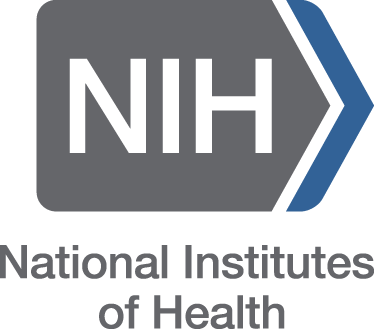Memory and Dementia
Breadcrumb
Is it Forgetfulness or Dementia?
Adults may worry about their memory and other thinking abilities, such as taking longer to learn something new. These changes are usually signs of mild forgetfulness — or age-related forgetfulness — and are often a normal part of aging.
However, more serious memory problems could be due to other factors. Dementia is a general term that describes the loss of cognitive functioning or the ability to think, remember, and reason. Dementia is not normal forgetfulness.
Discover MedlinePlus
MedlinePlus is a service of the National Library of Medicine, the largest biomedical library in the world. Use MedlinePlus.gov anywhere, anytime, on any device - for free - to discover high-quality health and wellness information that is reliable, easy to understand, and free of advertising, in both English and Spanish.

Discover information on various types of dementia:
- Alzheimer's Disease
- Frontotemporal dementia
- Lewy Body Dementia
- Mild Cognitive Impairment
- Neurocognitive disorder
If you or someone you care for may have dementia, talk to your medical provider.
Discover NIH
 The National Institutes of Health (NIH)] is the nation’s leading medical research agency making important discoveries that improve health and save lives. NIH is made up of 27 Institutes and Centers, each with a specific research agenda, often focusing on particular diseases or body systems.
The National Institutes of Health (NIH)] is the nation’s leading medical research agency making important discoveries that improve health and save lives. NIH is made up of 27 Institutes and Centers, each with a specific research agenda, often focusing on particular diseases or body systems.
- The primary NIH organization for research on dementia and cognitive impairment is the National Institute on Aging.
- The primary NIH organization for research on Lewy Body Dementia and Frontotemporal Dementia is the National Institute of Neurological Disorders and Stroke.
Discover More
Accelerating research, driving risk reduction and early detection, and maximizing quality care and support is important. Alzheimer's.gov and The Alzheimer's Association produce information for you to participate in the understanding of your health and preventive care and to seek treatment when you suspect something is wrong.
Use the easy-to-read resources developed by these agencies and associations to share information in your community.
- Age-Related Forgetfulness or Signs of Dementia? [Infographic]
- Making Healthy Lifestyle Choices May Reduce Your Risk of Dementia [Infographic]
- Understanding Different Types of Dementia [Infographic]
- Alzheimer's Disease Fact Sheet
- 10 Warning Signs of Alzheimer's Worksheet [PDF]
- What to expect when visiting the doctor [PDF]
- Clinical Trials

Research is still evolving, but evidence is strong that people can reduce their risk of cognitive decline by making key lifestyle changes, including participating in regular physical activity, staying socially engaged, and maintaining good heart health.
"You have agency over your brain health. So just like the rest of your body, you have an influence over the health of your brain and your memory and there's lots you can do to take care of it... your sleep habits, eating, exercise, managing stress, and learning new things." - Lisa Genova
Memory Care Certified Communities
An estimated 6.5 million Americans aged 65 and older live with Alzheimer’s and roughly 34% of assisted living community residents have Alzheimer’s or other dementias. The Joint Commission and the Alzheimer’s Association are collaborating to offer Joint Commission Memory Care Certification for Assisted Living Communities. This program helps organizations address the quality and safety needs of their residents minimizing risk and improving care for patients and residents with all levels of cognitive impairment.
Organizations awarded with Memory Care Certification will be recognized on The Joint Commission Quality Check® website and on the Alzheimer’s Association Community Resource Finder, a database of dementia and aging-related resources for those seeking programs and services.
Public Libraries
Public libraries are embedded in almost every American community, offering a unique opportunity to welcome and engage the 81% of people who have dementia who are still living at home, as well as the people who care for and about them. Libraries can also actively serve and enrich the experiences of people living in memory care and other facilities. The American Library Association has a directory of information and resources to help public libraries get started with dementia friendly service.
Featured Books
-
Title: Everything Left to RememberPublisher Flatiron BooksYear published 2022Book image

-
Title: My Father's BrainPublisher Farrar, Straus and GirouxYear published 2023Book image

-
Title: RememberPublisher HarmonyYear published 2021Book image

-
Title: The SwimmersPublisher KnopfYear published 2022Book image

-
Title: The Unexpected JourneyPublisher The Open FieldYear published 2025Book image

Terms of use: Network of the National Library of Medicine (NNLM) staff offer these health discussion resources for educational use. The materials included do not necessarily reflect the views or opinions of the author, publisher, or the sponsoring agencies of the National Library of Medicine (NLM) and the National Institutes of Health (NIH).
